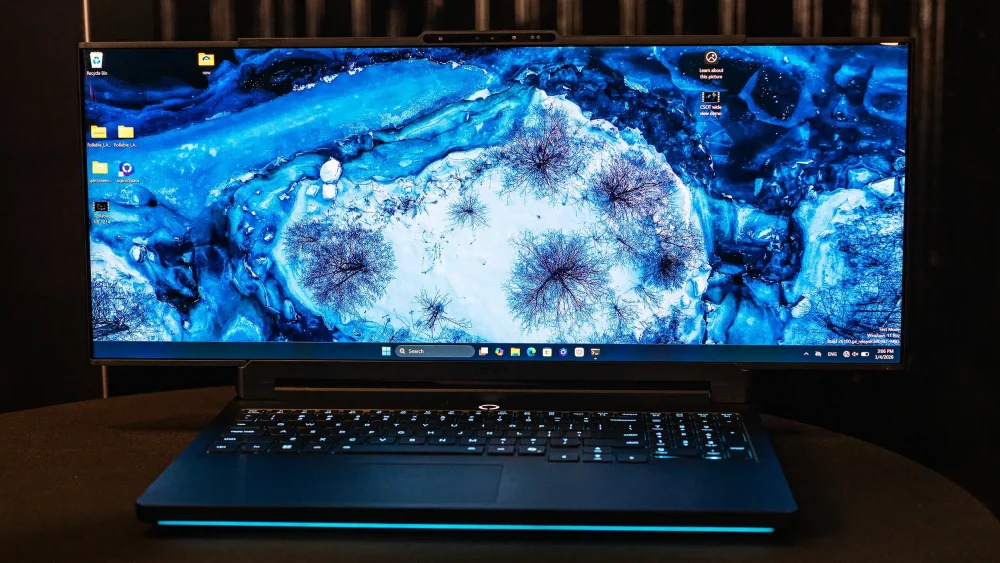Intel CEO Pat Gelsinger plans to ‘establish Intel Foundry as an independent subsidiary.
Intel is spinning off its chipmaking business as part of its plans to reverse billions in losses and a tumbling stock price. In an announcement on Monday, Intel CEO Pat Gelsinger said the Intel Foundry will become an independent subsidiary with “clearer separation and independence” from Intel.
With the change, the Intel Foundry will have its operating board and report its financial earnings separately from Intel. Intel will also stop work on the factories it’s building in Poland and Germany for two years “based on anticipated market demand.” However, the company is still moving forward with its Arizona, Oregon, New Mexico, and Ohio plants.
Additionally, Intel plans to sell part of its stake in Altera, the programmable chip company it acquired in 2015. It will also cut around two-thirds of its global real estate footprint. As part of this announcement, Intel revealed that the Biden administration awarded the company up to $3 billion in funding to make chips for the US military.
These changes will likely be crucial in getting Intel back on track as a leading chipmaker. In addition to widespread issues affecting 13th and 14th Gen CPUs, the company reported $1.6 billion in the first quarter of 2024, with its chipmaking business alone racking up $7 billion in operating losses in 2023. In August, Intel announced layoffs affecting 15,000 workers, and now it says it is “more than halfway” to this goal.
“As I’ve said before, this is the most significant transformation of Intel in over four decades. Since the memory to microprocessor transition, we have attempted something so essential,” Gelsinger says. “We succeeded then — and we will meet this moment and build a stronger Intel for decades to come.”
Even though Intel is betting that its new 18A chipmaking process will help stem some of its losses, a recent report from Reuters suggests that early tests have failed when creating Broadcom’s silicon wafers. Next year, Intel plans to produce chips using the 18A process for partners like Microsoft and Amazon.
Intel develops AI chips for Amazon in a multibillion-dollar deal. Intel is making two new AI-capable chips for Amazon’s cloud computing unit, including one based on Intel’s Xeon 6.
After a summer of mass layoffs and troubled processors, Intel is moving forward with a multibillion-dollar, multiyear deal with Amazon’s cloud computing unit, Amazon Web Services. Under Monday’s agreement, Intel will design and produce at least two AI-enabled AWS chips.
One of the Intel AI chips will use the 18A process node, while the other will be based on Intel’s Xeon 6 built on Intel 3. The companies have already worked together for years and plan to deepen their relationship through the chip deal.
Amazon and Intel also continue to invest in their Ohio operations. Amazon plans to build a multibillion-dollar data center, and Intel is building two chip factories in the state’s New Albany area. Intel alone hopes its Ohio plans will create more than 3,000 regional jobs.
“This partnership between Intel and AWS is a great development for US-based manufacturing and establishing Ohio as a leader in artificial intelligence,” Ohio Governor Mike DeWine said in a statement. “Today’s announcement reinforces Intel’s commitment to American manufacturing facilities like those in Ohio, as well as AWS’ commitment to its nearly decade-long investment in our state.”
Amazon has bet big on the promise of genetic artificial intelligence. It has invested in Anthropic, which makes Claude chatbots and has added genetic AI features throughout Amazon’s shopping site through AI-generated descriptions and the Rufus chatbot. AWS also offers AI-as-a-service through its cloud computing division, including a programming assistant called “Q” and an AI application generator.
Intel, in turn, could benefit financially from the AI boom as one of the largest US chipmakers. However, Intel has faced some challenges this year, specifically with its 13th and 14th-generation desktop chips. The problematic chips have sparked legal investigations and could lead to multiple class-action lawsuits, although Intel has said its laptop chips are unaffected by the bug. Over the summer, Intel also confirmed that it is making dramatic cuts to its workforce, laying off 15,000 employees, reportedly to improve its financial situation.
Earlier this year, the Biden administration announced $8.5 billion in funding for Intel to build more chip factories in the US through the 2022 Chips Act. This week, Intel received another $3 billion in direct funding under the Chips Act for the US “Secure Enclave” program, which is intended to help design advanced chips for government purposes.


